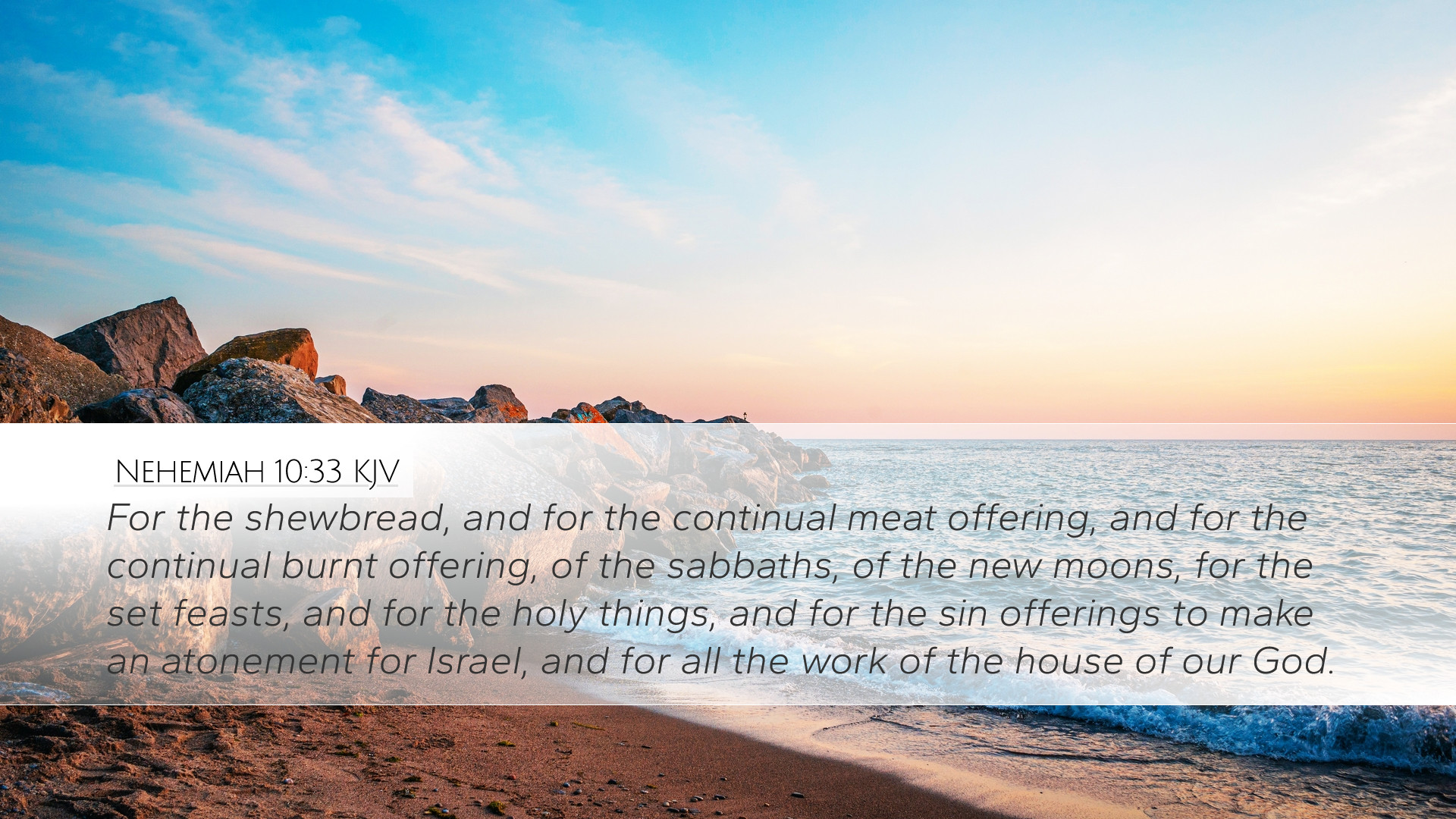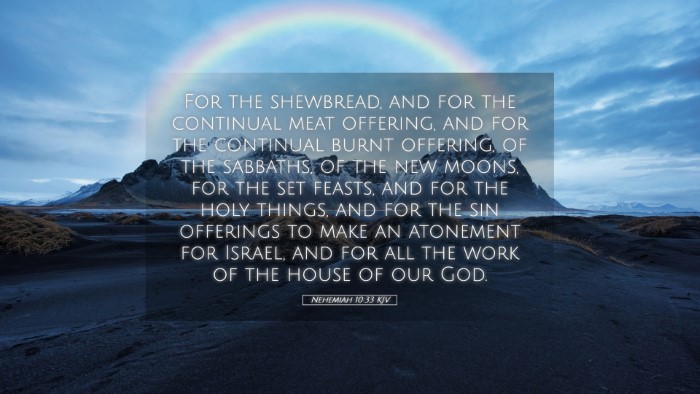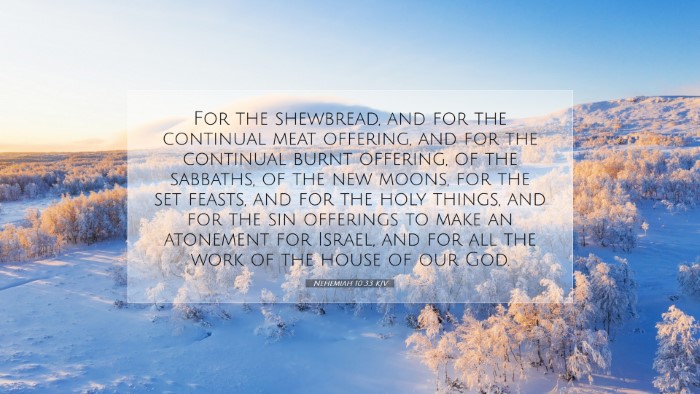Commentary on Nehemiah 10:33
Nehemiah 10:33 states:
"For the showbread, and for the continual meat offering, and for the continual burnt offering, of the sabbaths, of the new moons, for the set feasts, and for the holy things, and for the sin offerings to make an atonement for Israel, and for all the work of the house of our God."
Introduction
Nehemiah 10:33 provides an insight into the promises made by the people of Israel as they renew their covenant with God post-exile. This verse outlines the specific offerings and responsibilities regarding worship and service within the temple.
Contextual Background
The Book of Nehemiah details the restoration of Jerusalem’s walls and the reestablishment of the Jewish community after Babylonian captivity. Following the physical restoration, Nehemiah emphasizes the spiritual rejuvenation of the people, which is symbolized through the pledges made in Nehemiah 10.
Exegesis of the Text
In analyzing Nehemiah 10:33, several themes emerge:
- Covenant Commitment: The phrase "for the showbread" signifies a commitment to the offerings and sacrifices that sustain the spiritual life of the community. These offerings were integral to maintaining fellowship with God.
- Continuous Worship: The mention of "continual meat offering" and "continual burnt offering" reflects a dedication to continuous worship. This underscores the importance of regular and consistent engagement with God through offerings.
- Seasonal Observances: The reference to "sabbaths" and "new moons" points to the observance of specific times ordained by God, indicating a rhythm of worship tied to both agriculture and spirituality.
- Atonement and Holiness: The inclusion of "sin offerings to make an atonement for Israel" highlights the need for reconciliation with God. It suggests an acknowledgment of sin and the community’s desire for holiness.
Theological Insights
The commitments outlined in Nehemiah can be explored theologically as they pertain to Christian practice and community life today:
- Significance of Offerings: Matthew Henry notes that the offerings mentioned reflect a heart of gratitude and recognition of God’s continual provision. They remind believers today of the importance of sacrificial living and giving.
- Corporate Responsibility: Albert Barnes emphasizes that these pledges unite the community in shared worship. There is a collective aspect to atonement and devotion that is vital for the church body today.
- God’s Faithfulness: Clarke points out that the establishment of these offerings demonstrates the faithfulness of God towards His people in their return and restoration; similarly, God invites believers today to trust in His faithfulness.
Implications for Ministry
The content and commitments found in Nehemiah 10:33 bear significant implications for pastors and church leaders:
- Encouraging Worship Practices: It serves as a reminder for spiritual leaders to foster worship environments that encourage regular and heartfelt offerings, both materially and spiritually, to God.
- Leading by Example: Leaders should model covenant faithfulness in their relationships, encouraging collaboration and unity within the church community.
- Focus on Holiness: The emphasis on atonement calls leaders to stress the importance of holiness in the life of the church, promoting confession, repentance, and restoration.
Conclusion
Nehemiah 10:33 encapsulates a profound moment of commitment for the Israelites, serving as a historical testament to the importance of continuous worship, corporate responsibility, and covenant faithfulness. For modern believers, it invites deeper reflection on their relationship with God and how they collectively engage in worship and community life. As we study this text, may our hearts be aligned with the principles found within, leading to a vibrant and active faith community.


